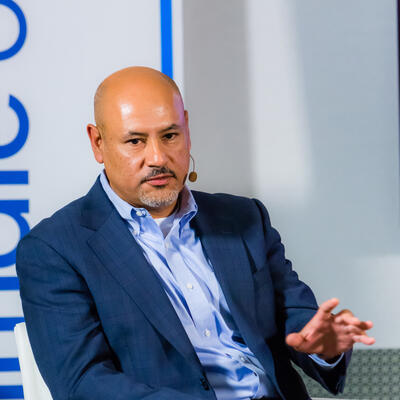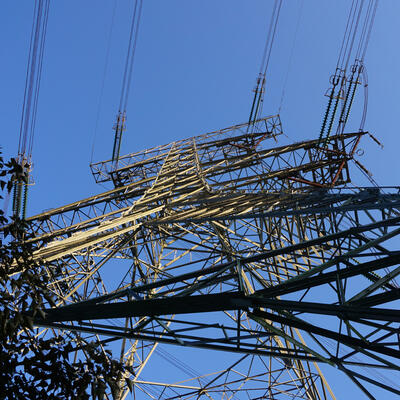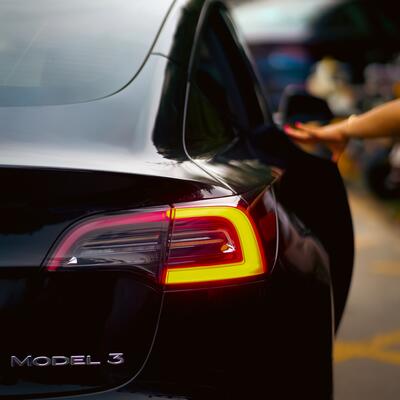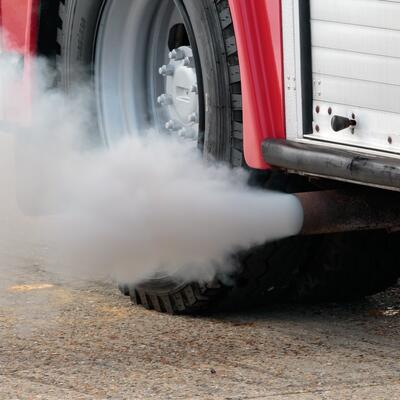
Busted: The Newest Emission Cheaters
Guests

Rachel Muncrief
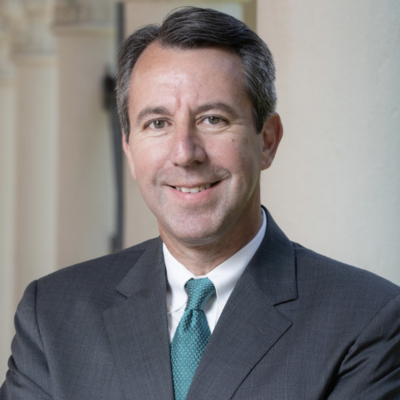
Hector De La Torre

Margo T. Oge
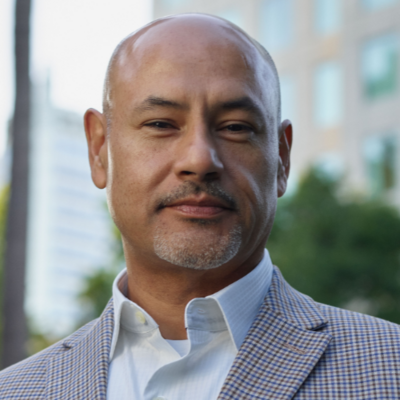
Alberto Ayala, PhD, MSE
Summary
A settlement for the largest civil penalty resulting from the Clean Air Act has just been reached. The EPA, DOJ and the State of California have agreed to a $1.7 billion fine for engine maker Cummins Inc. The fine is the result of Cummins being caught using “defeat devices” to fool the emissions testers and regulators into thinking the engines pollute less than they really do.
The settlement’s announcement was fairly surprising to many in the industry, as Cummins had been seen as a leader in sustainability. In one of their online promotional materials, they say, “We want to do our part to address climate change and any other environmental challenges that threaten our future. Our mission is to leave a positive impact in every community where we operate.”
This sounds like a rerun of the famous Volkswagen Dieselgate story from nearly10 years ago. Like Cummins today, Volkswagen made headlines for using defeat devices to cheat on emissions tests. So what is a defeat device? Rachel Moncrief, Acting Executive Director of the International Council on Clean Transportation, says there are many different kinds of defeat devices. In general, “they're reducing the effectiveness of the emissions control device without getting prior approval from the EPA.”
Car manufacturers have turned to defeat devices for decades. In one early example, a car company designed a system that would trigger a more efficient engine mode when the hood was open. They did this because they knew that the only time the vehicle would be running with the hood up was during testing. Now defeat devices are much more complex.
The California Air Resources Board tests every vehicle before it can be sold in the state. In the case of VW, CARB did their normal testing but found that their results did not match the results of tests that the University of West Virginia had done. The big difference was that much of the university’s testing was done by driving the cars in the real world.
“When they took the cars out on the road. They were getting very different readings,” says California Air Resources Board member Hector De La Torre.
In the end VW were fined $2.8 billion in criminal penalties and around $25 billion overall.
Fallout from theVW scandal can still be felt today. VW had been focused on diesel; now they have a robust EV lineup. Money from the settlement has been used to electrify transportation throughout the US, from building out charging infrastructure to replacing dirty vehicles with clean ones, including electric school buses. One of the biggest outcomes of the settlement was the requirement that VW build out a nationwide charging network, now known as Electrify America. Unfortunately, maintenance on Electrify America’s stations have not kept pace with demand.
“Almost every company has cheated, from Toyota to GM to Honda,” says Margo Oge, Former Director of the Office of Transportation and Air Quality at U.S. EPA. Cheating is an industry wide problem that will challenge regulators as long as they are emissions to test. So as CARB’s Hector De La Torre says, “The variety of cheating scandals on internal combustion engines, whether they are gasoline or diesel shows that we have to get away from combustion period.”
Resources From This Episode (4)
Full Transcript
Note: Transcripts are generated using a combination of automated software and human transcribers and may contain errors. Please check the actual audio before quoting it.
Greg Dalton: I’m Greg Dalton.
Ariana Brocious: I’m Ariana Brocious
Greg Dalton: And this is Climate One.
I'm in California, which is still drying out from some record rainfall and big storms recently. Some places in Los Angeles received 10 inches of rain in two days. That's a month's worth of rain.
Ariana Brocious: And all that rain means a lot of flooding, it means downed trees, it means power outages, it has some real severe consequences. And, you know, the same day I was reading about the California floods, I was also struck by news about Chile's wildfires. These huge wildfires that have been ripping through Chile's coastal region, which are also really devastating. And this is climate change. This is the stuff we're seeing with increasing frequency happening around the world.
Greg Dalton: Scientists tell us they know, they have measured from space that for one degree of warming since industrial times, there's 7 percent more moisture in the atmosphere. We remember from high school science, warm air holds more moisture, that means more severe storms and rainfall.
Ariana Brocious: And we know why this is happening. It's because of emissions. Emissions that we as humans are creating, a lot of which are coming from our tailpipes of our gas fueled cars.
Greg Dalton: That's right. Vehicles are the biggest source of emissions in the United States, and they're growing where other emissions are declining. One story that caught my eye that didn't get a lot of attention recently is that the engine manufacturer Cummins has been caught cheating on their emissions tests.
Ariana Brocious: So you may have not heard of this company Cummins, but that doesn't mean you haven't encountered their products because they make engines for hundreds of thousands of trucks and buses. And most notably for today's episode, the Dodge Ram, which is a truck you've probably heard of.
Greg Dalton: Every vehicle sold in the U.S. must get tested for how much pollution comes out of the tailpipe before the vehicle can go on the market. So passing these tests is critical. And it was discovered that Cummins installed so called defeat devices to fool the lab tests into thinking that the engine's emissions are much lower than they really are.
Ariana Brocious: It's pretty extraordinary that they can build technology that is that smart, that it can outsmart the emissions detection, but it can't actually solve the problem. Um, and you know, this really reminds me of what we heard about with VW Volkswagen, not so many years ago. So Cummins and state and federal regulators have reached a settlement of around 1.7 billion for using these defeat devices. And that's a pretty big fine.
Greg Dalton: It is the largest find ever under the Clean Air Act. And the other thing that was really surprising was this:
[Playback]
We want to do our part to address climate change and any other environmental challenges that threaten our future. Our mission is to leave a positive impact in every community where we operate.
[End Playback]
Greg Dalton: Cummins had been known in the industry as a leader on emissions reduction, and even used that as a big talking point in their promo material.
And a couple of years ago at a transportation conference, I was on stage CEO Jennifer Rumsey on stage.
Ariana Brocious: And I’m sure that’s not the only time an executive has been slippery…but it’s particularly disappointing in this case. AND, let’s point out Cummins wasn’t the only company in the news.
Greg Dalton: BMW is facing a new government investigation in Germany into another possible emissions scandal. GM, Ford, Daimler, Subaru, Nissan have all faced litigation or investigations into their emissions. Cheating - especially on diesel engines - seems to be so common in the industry.
In the wake of the news about Cummins, I reached out to the Alliance for Automotive Innovation for comment. No response.
Ariana Brocious: You also talked with Rachel Muncreif [Mun-creef], Acting Executive Director of the International Council on Clean Transportation about the news of the Cummins settlement.
Rachel Muncrief: I was surprised. I was definitely surprised about the fact that they were using defeat devices. I guess we were not as much surprised about the fact that there was elevated emissions on, on a bunch of RAM trucks because actually my organization had analyzed emissions, and we had actually found elevated emissions on some RAM models back then. At that time, Cummins and the EPA had announced that they had discovered, um, some emissions deterioration issues, that they were recalling some vehicles around. So we sort of thought. That was the main reason. So we were surprised to hear that there was also defeat devices,
Greg Dalton: Can I just ask, what is, uh, emissions deterioration? I'm not sure, does that mean it gets worse as the car is driven more miles?
Rachel Muncrief: Yeah, so there's, there's basically like almost a mini power plant on the back of some of these diesel vehicles to control the emissions. It's a fairly sophisticated system and like a key part of that system is a catalyst. just like all of the cars out there have a catalytic converter, and, If not made properly, they can sort of deteriorate faster, than they should and so that sometimes happens and then typically, um, the manufacturer will work with the EPA, to recall those vehicles and fix them.
Greg Dalton: So it sounds like kind of a filter on the tailpipe that gets clogged and doesn't work as well over time. So Cummins installed defeat devices in RAM and other trucks. How do they work? What do they do?
Rachel Muncrief: Well, there's many different kinds of defeat devices. In general, what it is, is they're purposely reducing the effectiveness of the emissions control device without getting prior approval from the EPA. And that can happen. in many different ways, because there's a lot of sort of sensors and controls and everything again around these pretty sophisticated emissions control devices but we don't know exactly what it was in this particular case. That hasn't been released publicly.
Greg Dalton: Right, so, cars and trucks these days are, you know, mobile entertainment platforms and they're highly sophisticated. Is it possible that defeat devices were there unintentionally?
Rachel Muncrief: I would say no. Typically what happens is these emission control devices are calibrated by the engineers, you know, working on these systems and they know them quite well how they're going to behave. I would think it would be unlikely that they could sort of accidentally install a defeat device.
Greg Dalton: Okay, so it's not possible that someone like, oh, turned a screwdriver or changed some code and it slipped in there. The settlement has forced a recall as those Cummins engines are almost in a million vehicles. Many of them are Ram trucks. What's been the fallout for Cummins so far?
Rachel Muncrief: Yeah. It's still early days, I think, so it's really difficult to say. I'll tie it back, I think we're all familiar with the VW scandal. When that happened, we weren't kind of sure what was going to happen with VW. I would say to VW's credit, they really did sort of turn around the culture of the company from everything we've seen. They did huge investments in battery electric vehicles. They have very public targets now for EV sales goals for all of their brands pretty much globally. So I'm, you know, curious if something similar will happen at Cummins, if there's anything that they will do to sort of get more aggressive around really moving towards fully zero emission vehicles.
Greg Dalton: Right. And Cummins and VW aren't the only ones to receive hefty fines and get caught cheating. How common would you say this type of cheating is in the auto and truck sector?
Rachel Muncrief: Cheating versus finding loopholes in the regulations are something that I would like to mention. So what we've seen is that it is very, very common. In fact, in many, many tests that we do, the emissions from vehicles, and I'm not just talking about sort of like diesel NOx emissions, which is this particular case, but even the CO2 emissions of vehicles can be much, much higher in real world driving than it would be in the lab or what you would think it should be based on sort of the official targets that have been set, and that is something that's very, very prevalent, whether those are all cheating or whether those are just exploiting loopholes is a lot of times difficult to say from, from where we sit. I will sort of just give a little plug that that's one of the major benefits that we see with battery electric vehicles because they don't have a tailpipe, so we don't have to worry about this problem.
Greg Dalton: Sure. Yeah, it's hard to get intent. and also shows how laboratory conditions don't reflect real world driving, right? In fact, That's how West Virginia caught VW because they actually put their cars on the road and drove them around with human beings and realized, wait, this is different than the lab. Something's going on here.
Rachel Muncrief: Yeah. And, and hey, we contracted West Virginia to do that work. So just to give a little plug for that.
Greg Dalton: Thank you. Yeah. Your, your group was, your group was part of that revelation.
Rachel Muncrief: Yeah, yeah. That cheating by VW in that particular case was very, very egregious because the, the emissions were, were like an order of magnitude higher than they should be. But a lot of times we might. be seeing things that are just only double something like that, I do think it's very prevalent, and I do think, you know, we should actually consider ourselves fairly lucky in the United States, we have a environmental protection agency, we have a department of justice who has the authority, and I guess in this case, you know, the political will to really pursue these kind of cases. In many or maybe even most markets that we work in across the world, that's just not the case.
Greg Dalton: Right. And also outside groups such as ICCT checking the regulators, et cetera. There's different layers of, um, kind of observation and verification. How do you think this will change how Cummins operates? You said it's early days. Do we know, and there's some, I guess there's some litigation going on with the Department of Justice. What do you think this is going to mean for Cummins and, and for trucks?
Rachel Muncrief: Yeah. I would like to say that the way that we're seeing the world going is that I think we're all seeing in the light duty car sector that EVs are really coming now. We already have regulation in Europe that's going to go to 100 percent EV sales by 2035. We have a regulation that's about to be finalized ideally in the U. S. here on a similar trajectory. Heavy duty vehicles are a little behind, but the really good news is that I think we're finally at the stage where we can confidently say we have the technology, um, and it's going to be cost effective from a total cost of ownership perspective to actually be able to move away from needing to have an internal combustion engines in the trucking sector. And I think most trucks. that are on the road today can be replaced by, by battery electric trucks. a lot of the manufacturers are sort of already getting on board with that. They're doing massive investments. They're making commitments. The infrastructure is slow, but it is coming. and so, you know, I just hope that Cummins will be sort of getting on board with that as well.
Greg Dalton: And meanwhile, there's still this calculus. And, we've heard that GM, Ford, uh, we know about VW now Cummins. What is it about the incentive to cheat that makes these companies risk billion dollar fines and settlements and VW stock got it took a huge hit. You know, the CEO of Audi got a suspended jail sentence for one year and paid a million dollar fine personally. What's the payoff for cheating?
Rachel Muncrief: Yeah. I would say specifically in the VW case, it's very interesting. I think that was a very sort of built in culture. at the time VW, they weren't like a massive player, obviously in the U. S. market at the time, but they were selling a lot of diesel vehicles in Europe and in Europe, they basically were not doing very much enforcement. And we had known this for years. I mean, there was a lot of very high emissions coming from diesel cars in Europe, where diesel cars were much more prevalent. And. The manufacturers were really not held accountable. Um, so I think, you know, what probably happened is VW came to the U. S. and was like, Hmm, we can just kind of do a similar thing here and maybe we'll get a slap on the wrist. I think they were very, very surprised at the level of penalties that they got, both civil and criminal.
Greg Dalton: What was learned from the years after Dieselgate that could make the Cummins settlement more effective at preventing this happening again or more effectively using the money that comes out of it?
Rachel Muncrief: Yeah. Because the Volkswagen settlement, obviously the, the, for the, the civil case, the Cummins settlement slightly larger than the Volkswagen settlement, but they, Volkswagen also had much larger criminal findings. So they hadn't, there was another like 20 billion, basically, and so the actual like money that went back into trying to undo some of those harms from that excess pollution that had been happening, was higher in the Volkswagen case than it will be in the, in the Cummins case, but that being said, I mean, I do think, you know, the fact that we had the VW settlement going to states to help them sort of get ready to install, you know, electric vehicle charging and all this stuff. I mean, it did help us to get prepared for where we are today, where the EVs are kind of getting more mainstream and coming out. I think it did set us up for, for a good situation now.
Greg Dalton: What is the most important outcome of dieselgate?
Rachel Muncrief: Yeah. So, I mean, to me, Dieselgate really, really changed the game, um, not just in the work that ICCT does, but just, um, overall in especially to speed up this transition that we know is going to have to come anyway if we have any hope of,staying anywhere close to the Paris, uh, climate targets, we need to transition to battery electric cars. And I think in the end, if you look back, Dieselgate actually did a lot to help accelerate that transition.
Greg Dalton: Sure. Tens of billions of dollars in capital was moved by VW. And that to me, pressure GM and other companies Rachel Moncrieff, thank you so much for sharing your insights on climate one.
Rachel Muncrief: Thank you.
Greg Dalton: We know that companies try to cheat the system for a reason: there are financial incentives to fool these tests.
Ariana Brocious: Right, cheating allows them to basically cut corners and save money on every car or truck produced.
Greg Dalton: (react) And in VW’s case, they wanted to build market share in America but their diesel engine couldn’t meet our emissions standards, so they used defeat devices to cheat the emissions test. After a few years of selling the cars, they actually did crack the technology to make their diesel engines meet the standards – but they decided it would still be cheaper to keep using the defeat device.
Ariana Brocious: (react) I had one of these diesel VWs, they were great cars, and it seemed like such a great combo– super long range and low emissions.
Greg Dalton: But regulators had a hunch that something was up, and over the course of years, their investigation got sharper and sharper.
Greg Dalton: Coming up, how did VW get caught?
Alberto Ayala: We really put them in a corner. It really was a point where they just had no other place to turn than to admit that it was a defeat device.
Greg Dalton: That’s up next, when Climate One continues.
This is Climate One. I’m Greg Dalton.
Ariana Brocious: And I’m Ariana Brocious. Recently, the engine manufacturer Cummins got caught cheating on their emissions tests. They were making engines that you find in trucks like the Dodge Ram – and those engines were fitted with a device that allowed them to pass emissions tests, when they should have failed them. If that sounds familiar… 10 years ago, the same thing happened with VW and their diesel cars.
Greg Dalton: Ah yes, Dieselgate. And uncovering that deceitful practice was a huge feat in and of itself. It took a whole army of engineers working in different organizations to crack the case.
If you want to understand how they did it, you’ve gotta start with an organization called the California Air Resources Board.
Hector De La Torre: the California Air Resources Board touches anything that emits, um, so that's pretty much everything in our economy, right? It's vehicles, it's factories, it's, uh, farms, it's trees, uh, everything that emits, we regulate, um, and interestingly, a lot of people don't know the California Air Resources Board was created by Ronald Reagan in the late sixties, uh, and the California Air Resources Board predates, uh, the United States Environmental Protection Agency. It predates the United States Clean Air Act. So California was a leader, uh, even back then, and it was bipartisan.
Greg Dalton: That’s Hector De La Torre, a member of the California Air Resources Board.
we are a board, with about 1,600 staff statewide, mostly technical staff, a lot of engineers, a lot of scientists, um, that are doing the analysis that leads to the regulations
Greg Dalton: He says it actually took years for regulators to figure out that VW was cheating. At the time, regulators really didn’t know much about diesel technology.
Alberto Ayala: Diesels had never been very popular in California or in the U.S. for that matter
Greg Dalton: Alberto Ayala worked at the California Air Board and led the investigation.
Alberto Ayala: and as we began to promote and expect, uh, the, uh, fraction of, uh, diesel cars in the fleet to grow, we quickly realized that we didn't really understand the technology. We had not tested it. We had not researched it to the level that We had other technologies like gasoline cars, for example, and that was really the beginning of our interest in, um, as I often say, just kick the tires, just trying to get our feet wet, trying to understand the technology. Just by the mere fact that we started testing, uh, as many different types of cars as we could get our hands on, um, it was, that's when it became clear to us that some cars were not performing the way that we expected them.
Greg: And that’s when the authorities came in… but not the ones you’d expect. Hector De La Torre remembers that moment well.
Hector De La Torre: It's actually a really great story. the European Union wanted to affirm that, um, clean diesel was a thing.And because, you know, they have a lot of manufacturers over in Europe that were making diesel vehicles and claiming that they were very, very clean. And these vehicles had passed all of the CARB tests, the normal ones, for every vehicle that's sold in California, it has to be tested by CARB. So, what happened was they hired the University of West Virginia, uh, to affirm that, that these cars were fantastic and clean. But then they got some odd test results that were not matching the test results that CARB had done when the vehicles had been built in the first place. And the California Air Resources Board had analyzed the vehicles like it analyzes every vehicle that is sold in California, regardless of what the federal government does. California has its own stricter Uh, rules and regulations.. And part of it is because we have some areas, namely in the Central Valley and the Los Angeles Basin that are more polluted than the rest of the state or, in fact, more polluted than the Clean Air Act allows. So California has its own authorities. We have to check in with the feds, but we have our own authority. So for that, we do our own testing of all vehicles and the two didn't match. the testing that was done by CARB when the vehicles were. First sold and throughout their tenure, uh, and the test results that University of West Virginia was getting. So they asked us to double check what they had done because they thought they had done something wrong. And what we found out was that the University of West Virginia had done much more on road testing than is normally the case. Normally you do it in a lab. You put the vehicle on a dyno.
Greg Dalton: Kind of like a treadmill kind of thing, yeah, mm hmm, mm hmm.
Hector De La Torre: So, uh, so most, most of the time, that's how cars are tested. And there's this, there's a cadence to it, right there. You speed up, you slow down. And so the testing is all kind of very rote. But when they took the cars out on the road. Um, they were getting very different readings and so they, again, they thought they had done something wrong. Um, uh, you cannot control, uh, the patterns on the road, right? You're going to hit a light, you're going to speed up, you're going to slow down, uh, at different cadences
Greg Dalton: and there's a lot of driver variability too, people's got a, you know, people have a heavy foot or they, yeah, so there's human variability and all that sort of thing, which is why I guess I understand to get consistent results you do it in a lab. That allows companies to cheat.
Hector De La Torre: And that's exactly what they did. They put in what is known as a defeat device. It is a computer in the vehicle that can tell when there is a pattern to the driving that is happening, and if there's a pattern, then it assumes it's being tested and it downshifts everything to reduce emissions,which if it's random, the computer would turn off and the defeat device would not engage, and it would just do its normal thing. So that is that was the key to this case was, uh, taking the car out, and they normally are driven out, but for very, very brief periods compared to the lab. And so in this case, they took it out and drove it more out In the wild, so to speak, and found the same things that West Virginia was, the University of West Virginia was finding, and then we knew there was something wrong.
Greg Dalton: And when the dust finally settled, VW was fined $2.8 billion. How was that money spent?
Hector De La Torre: Well, the feds got, um, a good chunk of it, and we got a good chunk of it, again, because California has separate rules, and they broke our laws, too, not just the federal ones, and that's why we were entitled to part of this. Um, the part that was spent in California was put into a multi year commitment to mitigate the pollution that they had done with these diesel vehicles. And so over the last few years, in fact, just last week, we did the last vote on the last tranche of 800 million, uh, from that settlement that went back into the communities, back into, uh, the transition to zero emissions. So we have done things like supported a zero emission car share. with that money from Volkswagen. We have supported building new charging infrastructure in the state of California. We have supported promoting EVs in the state of California. Uh, and then we've done some other things that were direct emissions reductions. Purchasing clean vehicles to replace dirtier vehicles so that we would reduce the emissions. All in all, it cost Volkswagen over 20 billion dollars when you take into account the vehicles having to be taken off the road, um, Uh, recalls that they had to do, et cetera, et cetera, over 20 billion. It costs them for cheating our systems. And interestingly, I mean, we started with Volkswagen, but we've been doing this for a while. Uh, the, one of the earlier cases was in 1997, when General Motors, uh, did something, uh, similar. They had software on, uh, their vehicles that was not taking all of the data that was being produced by the vehicle as it was running. And so it was giving a false impression of the emissions that were being produced by that vehicle. So it goes back 1997 and beyond that, um, car companies tried to cheat, uh, California's laws and they were caught
[music]
Greg: Even after regulators knew VW was cheating, Alberto Ayala says it took years to break the news to the public.
Alberto: The agencies did not announce the violation until 2015. And the reason for that is because we spent all that time doing a lot of testing, going back and forth with the company. It wasn't a trivial issue. But at one point in time in, in late 2014, The company, for other reasons, had already planned a recall, and before they can do that, they have to get approval from the agencies, and they sold it to us as an opportunity to fix the more recent problem, and that makes sense to us. We figured, uh, let's be efficient about it. They're going to be bringing the cars to fix this completely unrelated problem that will present the opportunity, and it made sense to us at the time, and that's why we approved it.
Greg: So they’d confirmed the cheating. The next step was to take that evidence back to VW.
Alberto: After years of work with the company going back and forth, we really put him in a corner where they had no other answer, which was a lie. Now we know other than just to admit that it was a defeat device. It really was a point where they just had no other, place to turn than to admit the cheating.
Greg: One important thing to remember is: VW wasn’t the only company trying to cheat. Here’s Margo Oge, has been a top pollution regulator for the EPA.
Margo Oge: Almost every company has cheated from Toyota to GM to Honda. What was different here is the level of cheating. I mean, 40 percent above the standards. And the fact is, Alberto said they kept on lying. Let me give you an example. In 2009, under the president Clinton, we caught all diesel track manufacturers cheating for a decade. They were improving fuel efficiency, and they were cheating. It took us 10 years to figure out. Nitrous oxide. Nitrous oxide. The first company that we caught, because we tested the engine, Cummins engine in our lab, I brought them into the office, and they said, Well, you know what, you know, uh, we really could not read the regulations. They're maybe vague. One company after the other, all seven of them came in. Within six months, the Department of Justice had to deal with them. They polluted 1 million metric tons of NOx. By the way, we never recover more than 10 percent of that. The total penalty for these companies, all seven of them, 1 billion dollars. Why? Because they admitted early on. They didn't keep on saying, you know, we're not cheating. We haven't done anything, you know, keep on lying. So every company for the most part cheats. And in the U. S., the good news is that we do have strong, you know, federal programs and California is very strong. So between California and EPA, we enforce those laws. In Europe, they have never had an enforcement case against the car company until the dieselgate broke.
Greg: So this is how VW was able to get away with their scheme in the US. But how about Europe?
Margo Oge: So basically what happened, Mercedes, for example, I'm not picking on Mercedes, could be any of these companies, goes to Portugal, and they ask a private company to certify their car. And they pay them. They don't pay EPA, they don't pay California in the U. S. So the company in Portugal, gives them a certificate. Then Mercedes takes it and can introduce their cars in any country in Europe. No penalties, no enforcement, until now, after the disalgate, that things have changed.
Greg: After years of investing heavily in diesel, VW changed their tune.
Margo Oge: They had a religion when it comes to diesel. Diesel was everything for them. So starting 2015, 2015. VW has made huge commitments to electrification of the 90 billion the industry totally is going to spend on electrification, 40 billion comes from VW. So Tesla was there showing the way, but Tesla is not the only way. You have a company like VW, which still is the number one company. 600,000 employees that is committed to this point. I cannot speak for them what's going to happen next year or the year after, but right now I can tell you with a lot of certainty that they are serious about electrification and they're making the investments. So, looking at the economics of electrification, that soon, in the next five years, electric cars will be as cost effective as diesel cars on the internal combustion engine. The fact that in Europe, in Germany, um, Stuttgart, the house of Mercedes, Munich, where BMW is, the highest court in Germany said that these cities can ban diesel. You can imagine the chill factor that is going down the spine of all these companies. So setting Tesla aside, dieselgate has a huge impact beyond what happened in the U.S., in Europe and other countries, to get citizen states realizing that the air pollution that they're facing comes from diesel cars, London, Paris, they're talking about banning diesel, even India, even California. But actually what is happening in Germany, where these most powerful companies are, to ban diesel cars, I think, is a big, big win for electrification.
[music]
Greg: So the regulators and the car company had wrestled it out. But over the span of years, hundreds of thousands of the cars they had been arguing about were on the road, being driven by actual people – who had places to go and needed those vehicles to get there. How did this news hit them?
Phillip Forbes: I own a 2013 Volkswagen Passat TDI 6 speed manual.
Greg: That’s Phillip Forbes, a VW owner in Hollister, California.
Phillip Forbes: I got a job that I knew was going to involve a lot of driving, about 50, 000 miles a year. And the day after I started, I went and bought this car. Mainly, it was just purely financial. I wanted to save money. My environmental concern was more the, uh, non renewable resource of fossil fuels. You know, in my mind, this was a vehicle that would consume less of that resource, and so that was a good thing. My car is one of, I believe the number is 12,000 or fewer out of the almost 500,000 in total, there will never be a fix available for my model. Honestly, this hasn't really impacted my views on Volkswagen. I know they're far from the first company who's done this. Obviously, it's wrong, but uh, I'm gonna keep driving the car. You know, I'm driving 50,000 miles a year. I've driven this car over a thousand miles between fuel stops before. That's insane. I mean, if I had 11,000, but not this car today, I have no idea what I would replace it with. So, uh, you know, I'll keep driving it.
Edward Niedermeyer: There's a saying it's actually I really like the saying, which is your mileage may vary. Right?
Greg: That’s Edward Niedermeyer, author and auto industry analyst.
And, and this is something I think everybody who's ever owned a car knows, right? You get the window sticker, uh, which comes out of the testing that the regulators do. Um, and that's sort of a, a, a baseline that you kind of hope to achieve. And some cars are better at, at hitting that, and some are not. And, and actually a lot of it has to do with how you drive the car. You know, how aggressively you accelerate. And certainly at a, in this country we don't really think or talk or, or teach people about how to drive more efficiently. It's not really part of our, our discourse around cars, right? Um, and so the Challenges with catching cheating really comes down to this issue, right? Um, the, the regulatory system is set up to be an even playing field. That's why we test in labs. We can control the variables, right? Um, and as a result, once you get them out, cars out into the real world, there's going to be variation from that because the conditions vary. A headwind, a tailwind, things like that. Um, and so, um, I think people are, are very used to sort of seeing some variants. And I think the car companies, that's one of the reasons it's so hard to catch this kind of cheating, is because people just expect these variations to exist. And rightly so, because, you know, the real world is, is very, you know, chaotic and, and, and variable. Um, and also, um, you know, consumers are, are quite conservative. They get used to certain things, and they want to keep doing them that way. Uh, things like You know, time between gas stations, uh, you know, stops for fuel. That's actually really important, and it's actually a really big challenge when you start to think about the new technologies that are coming down the road that will hopefully replace, um, some of these, these more polluting ones. You know, new technology is, is hard to develop, but I think when you compare that to changing people's behavior, uh, it's actually easier.
Ariana Brocious: You’re listening to a Climate One conversation about emissions cheaters. If you missed a previous episode, or want to hear more of Climate One’s empowering conversations, subscribe to our podcast wherever you get your pods.
Please help us get people talking more about climate by giving us a rating or review. You can do it right now on your device
Coming up, what is the best way to handle an industry that won’t stop breaking the rules?
Hector De La Torre: These cheating scandals just lead us back to needing to get to zero emissions.
Ariana Brocious: That’s up next, when Climate One continues.
Greg Dalton: This is Climate One. I’m Greg Dalton
It’s been 10 years since the VW emissions scandal known as “dieselgate.” With the recent news about the company Cummins doing much the same thing, you might wonder: did the action taken after the VW scandal have any impact? Let's hear the rest of my conversation with Hector De La Torre – he’s a member of the California Air Resources Board, which helped uncover the Cummins cheating.
Hector De La Torre: Well, we have had multiple defeat devices. That's been the new leap forward. And I think, you know, talking about Volkswagen, um, we put everyone on notice after Volkswagen that we were going to revisit every single vehicle in production and being sold in California, and so we went out and retested with this new knowledge about defeat devices, because again, that was like that was new to us, um, having software that doesn't include certain things like GM in the late nineties, or Uh, Ford, uh, in 2014, right before Volkswagen, uh, they had, uh, some, uh, limitations on their emissions control systems, same, same kind of thing as what, uh, GM had done, uh, but, but the idea that you would have a defeat device that is specifically there, uh, to, uh, cheat our testing and, and make it seem cleaner than it is. That was a new, uh, dynamic. And so we had, um, Volkswagen. Then we had Fiat Chrysler. Uh, we found that they were, uh, cheating with their Jeep grand Cherokee and Dodge Ram 1500s. Uh, that was one that came right after Volkswagen, um, and a Navistar another. Uh, diesel, uh, truck manufacturer, they cheated by submitting one thing and producing something completely different.
Greg Dalton: in the case of Audi, which was owned by VW, Rupert Stadler received a suspended jail sentence of one year and nine months for fraud in the diesel gate scandal. Also find about a million dollars. Does the California air board have power to put executives on the line? It's one thing to a billion here, a billion there. It's kind of the cost of doing business, right? Can the, does the California have the power to go after the executives themselves?
Hector De La Torre: We have not done that. And I do not think that we have that authority. Um, maybe the Attorney General does, uh, through through his authorities, but CARB itself does not.
Hector De La Torre: Yeah, but it's not just Electrify America. It's not just VW. We have found that most of the charging infrastructure is substandard. And that is why, again, we at The California Resources Board need to be more focused on the consumer protection, that it's reliable that it's available throughout the state underserved communities have their share obviously near the highways for folks who are on road trips, et cetera that these are all available and working for the general public,
Greg Dalton: Air Board that we're talking about, the California Air Resources Board has brought in, as we said, billions of dollars by catching car companies cheating. Some would say that you're interested in busting companies because you fund your own coffers. Is the Air Board becoming too dependent on these big fines to fund the agency?
Hector De La Torre: not at all. The money does go right back out in the form of programs. I mentioned some of them for Electrify America. We also, we also enforce our regular emissions regulations. For example, we have had situations where trucking firms were not complying with our, just our regular diesel emission regulations.
And in those sense, in those situations, we will find them and then the money goes right back out. In the form of mitigation for the pollution. So I have been at many a ribbon cutting at schools that are right alongside some freeways like the 7 10 where they put in filters in classrooms to protect the students from that diesel that is right next door.
And there are many. Programs like that we run that are based on the fine monies that we received. So it is not a, it is not a situation where we're getting the money for the agency to pay for staff or things like that. No that funding is built into our budgets every year funded by the legislature
Greg Dalton: What do you think is the real end game that should be done on light and heavy duty trucks regarding local pollution and climate change.
Hector De La Torre: Well, I think, you know, the variety of cheating scandals on internal combustion engines, whether they are gasoline or diesel shows that we have to get away from, uh, uh, combustion period. And so we have the advanced clean cars rule for passenger vehicles. We have the advanced clean trucks and advanced clean fleets rule, which is a supply and demand regulation for medium and heavy duty trucks going forward. By 2035 there will not be for sale a new internal combustion engine passenger vehicle. And there will not be new, uh, internal combustion, medium and heavy duty trucks sold in the state of California. They will all have to be zero emission. That doesn't mean we're taking away people's cars. It just means you will not be able to go buy a brand new internal combustion engine. And again, these cheating scandals just lead us back to needing to get to zero emissions on all of our transportation, and we are absolutely doing that with these regulations that have a glide path over time so that by the time we get to 2035 there will be significant numbers of zero emission vehicles on the road. In fact, California, last year, around 25% of new car sales in California were zero emission. Uh, that and that, that's way above our targets. So that is the market speaking. Those are consumers that are deciding they want these vehicles because of high gas prices, because the lifetime cost of a zero emission vehicle is less than an internal combustion engine. There's a lot less moving parts that can break. Uh, and, and the fuel is cheaper, um, as well than gasoline. And then on the diesel side, we already today, are two years ahead of our targets on medium and heavy duty trucks that are available today. Um, that are being used today. So we're very proud of that. And we're going to keep pushing on medium and heavy duty, uh, trucks to be transitioned to zero emission as well, specifically because of the diesel issue.
Greg Dalton: The road to zero all across our economy. Hector De La Torre is a member of the California Air Resources Board. Hector, thanks for coming on Climate One.
Hector De La Torre: Always a pleasure to see you, Greg. And, uh, thank you. Um, you know, we, we just, uh, we are here. To protect the public and, uh, the way, the way we do that is by cleaning up pollution that gets into our lungs and harms us, uh, in multiple ways. So we are, uh, absolutely honored to be representing the state of California that is a leader in the United States and in the world.
[music change]
Greg Dalton: There are still a lot of questions we can’t answer about the Cummins settlement, since other than the use of defeat devices and the settlement amount, not much has been made public.
Ariana Brocious: Right. And sadly it sounds like that kind of cheating is a pretty common occurrence in the transportation industry.
Greg Dalton: And it’s been like this for decades. I talked with an insider who told a story about an early attempt to cheat the emissions test. When the hood on the car was open, a device triggered the engine to run more efficiently because they knew the only time it would be running while the hood was open was in a lab…for testing. And as the cars get more sophisticated, so does the cheating.
Ariana Brocious: Now it’s complicated computer programming to try and achieve the same thing.
Greg Dalton: So the fines obviously make headlines, and there are some genuinely good things that come from these settlements. More EV charging, more access..
Ariana Brocious: And here’s one that many people may not know about: electric school buses. A school in Montana applied for money from the state to buy electric school buses. And that money came from…you guessed it, the VW settlement.
Greg Dalton: I read that story too, and they seem to really love their electric buses.
Ariana Brocious: And the buses they are replacing are diesel, so it comes full circle.
Greg Dalton: Another headline grabbing result of the VW settlement was the EV charging network called Electrify America. It was supposed to provide more charging infrastructure to help pave the way for more EVs.
Ariana Brocious: Well, why don’t we ask our in house EV correspondent more about that, producer Austin Colón
Austin Colón: Hey Ariana and Greg, thanks for having me on. As you both know, I’m a bit of a road trip lover. In just the past year, I’ve put about 30,000 miles on my EV traveling around the US.
Greg Dalton: So what is the state of Electrify America?
Austin Colón: Well, in my experience it’s not great. I don’t think I’ve ever stopped at an EA station where every stall works. And it’s not just me, it was rated the worst charging network in a J.D Power study.
Ariana Brocious: I imagine in a time when we need to be moving quickly to decarbonize, that could be a significant speed bump.
Austin Colón: Yes. It’s a real bummer. I want people’s early experience driving EVs to be as positive as mine. But they’re often not. YET. Just about every major EV manufacturer in the US has decided to switch to Tesla’s charging standard. And a bog part of their decision is because of their frustration with Electrify America’s network. And that’s going to slow down EV adoption because people don’t want to buy a car with an outdated charging standard. And right now, outside of Tesla, that’s what they’re being offered.
Greg Dalton: Meanwhile, the Biden administration is looking to put money into building more charging infrastructure.
Austin Colón: Right, and the administration has included standards and benchmarks that the chargers must hit to be funded, so hopefully that can help with some of the frustration EV drivers have been feeling. But I can’t help but feel like we would be much farther along had regulators created strict operating standards for the charging network from the beginning.
Ariana Brocious: Thanks for that Austin.
Austin Colón: Anytime.
Greg Dalton: It’s pretty amazing that we can still see the aftermath of the VW cheating settlement affecting our lives today. Both good and bad.
Ariana Brocious: Though I wish these companies getting caught would be more of a deterrent.
Greg Dalton: Right it still feels like these are parking tickets and the cost of doing business. And the best way to stop this kind of cheating is to stop burning fossil fuels.
Climate One’s empowering conversations connect all aspects of the climate emergency. To hear more, subscribe wherever you get your pods. Talking about climate can be hard-- AND it’s critical to address the transitions we need to make in all parts of society. Please help us get people talking more about climate by giving us a rating or review. You can do it right now on your device. You can also help by sending a link to this episode to a friend.
Greg Dalton: Brad Marshland is our senior producer; Our managing director is Jenny Park. Ariana Brocious is co-host, editor and producer. Austin Colón is producer and editor. Megan Biscieglia is our production manager. Wency Shaida is our development manager, Ben Testani is our communications manager. Jenny Lawton is consulting producer. Our theme music was composed by George Young. Gloria Duffy and Philip Yun are co-CEOs of The Commonwealth Club World Affairs, the nonprofit and nonpartisan forum where our program originates. I’m Greg Dalton.
